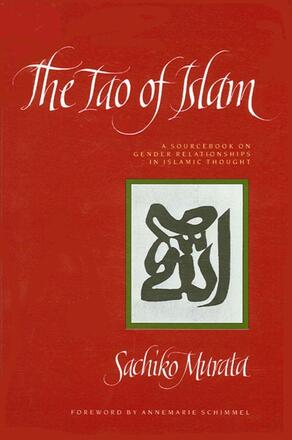
The Tao of Islam
A Sourcebook on Gender Relationships in Islamic Thought
Alternative formats available from:
Description
The Tao of Islam is a rich and diverse anthology of Islamic teachings on the nature of the relationships between God and the world, the world and the human being, and the human being and God. Focusing on gender symbolism, Sachiko Murata shows that Muslim authors frequently analyze the divine reality and its connections with the cosmic and human domains with a view toward a complementarity or polarity of principles that is analogous to the Chinese idea of yin/yang.
Murata believes that the unity of Islamic thought is found, not so much in the ideas discussed, as in the types of relationships that are set up among realities. She pays particular attention to the views of various figures commonly known as "Sufis" and "philosophers," since they approach these topics with a flexibility and subtlety not found in other schools of thought. She translates several hundred pages, most for the first time, from more than thirty important Muslims including the Ikhwan al-Safa', Avicenna, and Ibn al-'Arabi.
Sachiko Murata is Professor of Religious Studies at the State University of New York, Stony Brook.
Reviews
"This is a genuine foundational work in Islamic studies. It is an open door into the very heart of Islamic civilization, while at the same time it suggests the bases of important comparisons and insights for those interested in cognate areas in Western cultures.
"It is a fascinating, truly original work in both its guiding perspectives and its comprehensive, clearly presented account of a central dimension of Islam. There is nothing like it, and it deserves a wide audience. " — James W. Morris, Oberlin College
"It clearly, competently, and comprehensively describes the worldview implicit in the medieval Islamic "wisdom" tradition represented by Sufism and Shi'i philosophy, particularly the way that gender concepts are implicit in their cosmology and psychology, and can be related to the Taoist concepts of yin and yang. The author's critique of feminism and modern reformism on this basis is penetrating. " — Valerie Hoffman-Ladd, University of Illinois